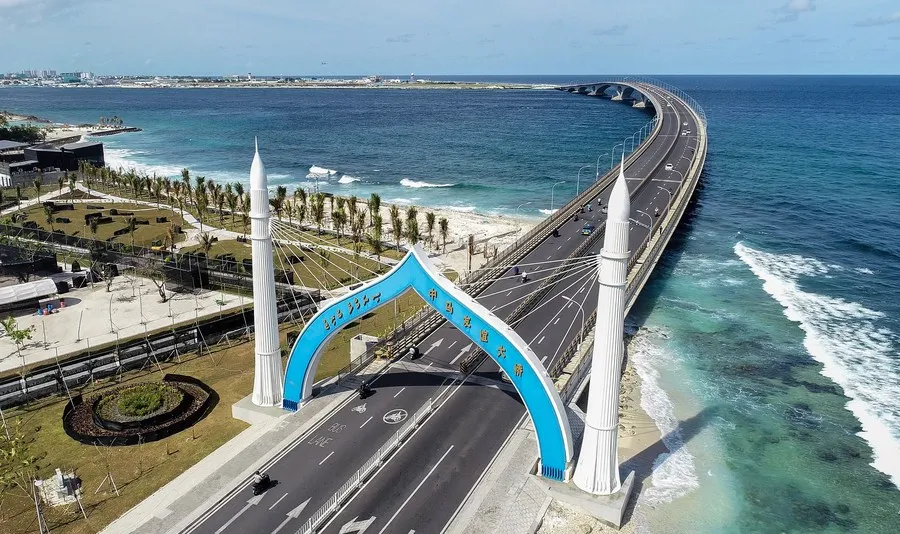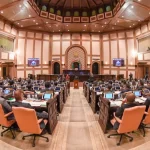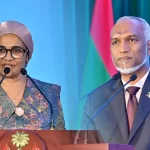MALE’, Maldives — The government is facing significant public backlash after reports surfaced about a potential toll on the China-Maldives Friendship Bridge, a vital link between the capital city of Male’ and the manmade island of Hulhumale. In a nation where the government heavily subsidizes public services, the idea of charging a toll has provoked widespread anger and frustration.
The controversy began during the launch of the “Male’fahi” program, where a video presentation suggested a study on toll collection as part of the initiative. The bridge, maintained by a Chinese contractor under a five-year agreement renewed by the current administration, has always been toll-free, making the proposal particularly contentious.
President Dr. Mohamed Muizzu quickly responded to the outcry, stating that it is not his policy to impose tolls on the bridge. “The ‘Male’fahi’ plan announced yesterday included a study on toll collection with the intention of providing me with technical advice,” Muizzu clarified on social media. “Even if the technical advice received suggests that tolls will not be imposed until the roads in the city are completely upgraded and the parking problem is adequately resolved, and the economic situation of the country and its people is adequately improved.”
Despite this assurance, the incident has highlighted broader issues regarding the management of vehicle congestion and infrastructure maintenance in the Maldives. Currently, vehicle fees in the Male’ region are not distinguished from those in other parts of the country, despite unique regional number plates and varying import duties.
The government’s exploration of tolls is driven by the need for a sustainable way to maintain the bridge. In an economy that is dependent on state revenues, free services are common, but as an island nation, Maldivians are not accustomed to such measures. The government could study the traffic patterns on the bridge and consider increasing vehicle fees specifically for the Male’ region. Additionally, implementing RFID technology could help in collecting fees and fines based on zones and types of violations. The solution must be innovative, balancing creativity with fairness, to address the unique challenges of Male’ roads effectively. However, doubts arise about whether this can be realistically implemented given the current state of financial technology in the country. Government websites and databases often lack security and up-to-date information, let alone providing basic online services like fillable forms.
It’s also notable that any issue falling within the government’s purview inevitably entangles the president. Although the government is centered around the president, even minor policy missteps seem to land directly at his feet. These public relations challenges have been a recurring problem since this administration took office, and the previous Solih government was no exception.
This episode reflects a recurring theme of public relations and communication difficulties for the government, where even minor policy suggestions can escalate into major controversies, indicating a broader issue in policy communication and public engagement.
As the Maldives anticipates the opening of the Thilamale’ Bridge next year, which will be longer and primarily used for commercial transport, the debate over tolls is likely to continue. The government faces the delicate task of balancing economic realities with public expectations, requiring innovative and fair solutions for infrastructure funding.
The central question remains: can the Maldives introduce a toll system that respects the nation’s unique context and addresses public concerns? The government’s approach to this issue will be crucial in shaping its future infrastructure policies and public trust.












